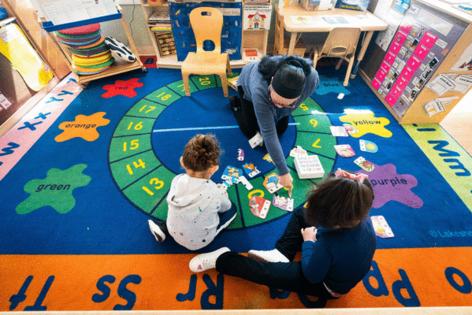Childcare staff often make less money than retail workers. That's causing staff shortages and long waitlists at daycares
Published in Business News
At Bright Little Scholars’ two Philadelphia locations, director and pre-K teacher Mercedes Fleet employed 21 different people throughout 2023. She only has five staff positions.
“It’s a never-ending cycle” of turnover, Fleet said.
Fleet pays $15 per hour to her two aides and $20 to a pre-K teacher with a bachelor’s degree, and whatever is left to herself, which is usually around $20 per hour or a little less.
Fleet started a third location last year, but was forced to close it temporarily because of her staffing struggles. “I would need to hire two more [people] to staff it, then two floaters to go between the three (locations),” Fleet said. If she can’t reopen soon, she may need to find a way out of the lease.
Childcare workers and preschool teachers are two of the most in-demand jobs right now in Pennsylvania, and that demand is expected to grow at a clip through the end of this decade. They’re also two of the lowest-paid jobs.
Care providers and industry experts say the staffing shortage in early childhood education and childcare will only get worse unless the Pennsylvania government steps in to provide more funding, specifically money that would help those centers pay their staff. Without that assistance, more centers will downsize classes or close entirely, and wait lists for care will only get longer.
This problem is already costing the Pennsylvania economy more than $6.65 billion annually, due to working parents calling out or losing their employment due to inadequate childcare, according to a study by Council for a Strong America and the Pennsylvania Early Learning Investment Commission.
It’s also leaving parents with unsavory options. For some, it means leaving the workforce. For others, it could mean sacrificing children’s safety.
If staffing shortages are allowed to continue and worsen, licensed childcare at regulated facilities will be out of reach to more people. Those who cannot go without work may resort to centers where the child-to-teacher ratio is too high, or other safety rules are ignored, said Tyrone Scott, director of government and external affairs at First Up, an early education advocacy organization.
“We’re heading for dangerous childcare,” Scott said.
...continued
©2024 The Philadelphia Inquirer, LLC. Visit at inquirer.com. Distributed by Tribune Content Agency, LLC.







Comments